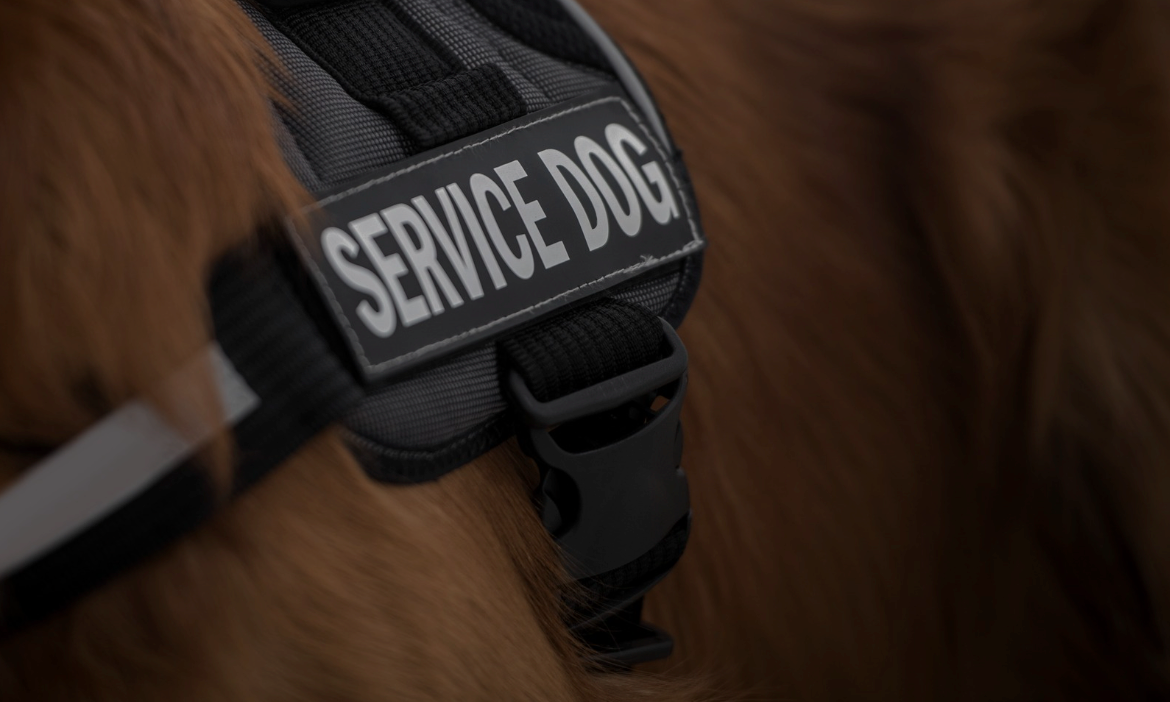Service dogs are like little superheroes in furry disguises, offering vital support that goes way beyond the classic role of ‘man’s best friend.’ These incredible dogs are not just fetching sticks—they’re fetching independence and a better quality of life for people with disabilities. Sure, we all know about guide dogs for the visually impaired, but service dogs are like the Swiss Army knives of the canine world, ready to tackle a variety of physical and mental health challenges. These dogs are diligently trained to perform specific tasks, and are crucial to those who need some extra support in their life. If you're ever wondering why it's so crucial to allow service dogs in any location their handler travels, you've found the right blog.
Mobility and Psychiatric
Mobility assistance dogs help individuals who use wheelchairs by retrieving items, opening doors, pushing buttons, and so much more. Guide dogs for the visually or hearing impaired are also highly trained to meet their handlers needs, ensuring the path their handler travels is safe and sure. Meanwhile, psychiatric service dogs (the therapists of the dog world), are trained to assist those with mental health disorders, such as PTSD, depression, or panic disorder, by interrupting anxiety attacks and keeping their humans grounded during episodes of depression or dissociation. These dogs can perform certain tasks such as interrupting self-harming behaviors, providing tactile stimulation during distressing episodes, or reminding their handlers to take their medication. Aside from those life-saving tasks, they simply provide the support that someone may not be able to receive elsewhere. Even when no one else is around, they are there.

Mental Disabilities
Psychiatric service dogs also play an invaluable role in enhancing the lives of individuals with mental disabilities, providing both practical support and emotional companionship. Autism service dogs are another remarkable category, trained to support individuals on the autism spectrum by promoting safety, improving social interactions, and helping with sensory regulation. Each type of service dog is specially trained to meet the unique needs of their handler, fostering greater independence and enhancing quality of life. Emotional support animals, while not classified as service dogs, also play a significant role in offering comfort and companionship to those dealing with emotional or psychological challenges. As our understanding of mental health evolves, so too does the appreciation for these phenomenal canine companions and their ability to transform lives.

Health Conditions
As the multitaskers of the animal kingdom, service dogs are increasingly being trained for less common conditions as well, reflecting the expanding understanding of their potential roles. Seizure alert dogs, for instance, have this uncanny ability to sense an oncoming seizure— no, they don’t have crystal balls, just some incredible instincts (although that would be adorable) — and alert their handlers, providing them enough time to get to a safe place. Service dogs aren't just there for emotional support, although that definitely helps, but they are a constant protector - learning their handlers behaviors, habits, and triggers in order to ensure that they can save them each and every time, should something go wrong. There are also diabetic alert dogs, who can sniff out changes in blood sugar levels faster than you can say "glucose” – as well as allergy alert dogs that are trained to alert their handlers before symptoms become severe.

Featured: Diesel - a Stroke Assistance Service Dog and Tactipup ambassador.
On a serious note, these amazing dogs can mean life or death for their handlers, and it is so important to recognize the hard work and meticulous training these pups complete in order to receive the title of "Service Dog". These amazing animals are more than just helpers—they’re lifelines that foster autonomy and create a crucial link to the outside world for many people living with disabilities. Their unwavering dedication and support highlight just how essential service dogs are in our society.
“A service dog is more than a friend; they are a set of wings to freedom.” – Unknown

